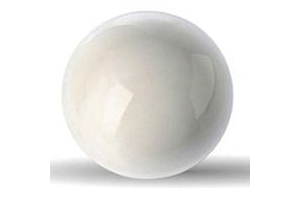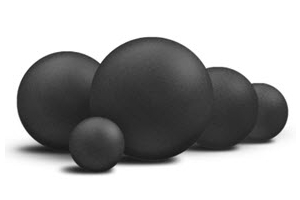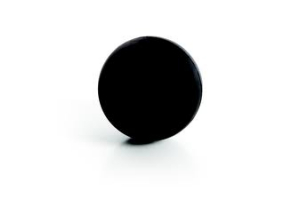Pneumatic, hydraulic and water applications frequently employ rubber resin balls for their flexible, strong, oil-resistant characteristics. Their use in fluid and air control systems and components, such as check valves, serves as a perfect example. Two key resin materials continuing to make headway in the industry are Buna and Viton. Both Buna and Viton rubber are specifically designed to resist nearly any oil and provide excellent compression set resistance. Either will work in a moderate temperature application, such as industry and manufacturing.
Choosing the correct rubber resin ball material matters more as the application becomes more specific. For example, Viton over, Buna, is essential for high-temperature applications, which provides an indefinite seal up to 400°F and about a 2-day seal for temperatures up to 600°F. Meanwhile, Buna is only effective in the same manner up to 250°F and is the better option for low-temperature seals as low as -30°F.
Buna Rubber Characteristics
Buna, which is also known as Nitrile, Buna-N, Perbunan or NBR, performs well in applications requiring metal adhesion and abrasion resistance. Success in these areas is attributed to the rubber’s excellent oil resistance, such as with petroleum, vegetable and mineral oil. An advantage to note over natural rubber is Buna’s ability to strongly resist heat aging, where natural varieties harden and lose its damping ability. Multiple characteristics render Buna an excellent choice for rubber resin ball applications, with a few of these properties listed below.
- Chemical definition: Butadiene Acrylonitrile
- Temperature range: -30°F/-34°C to 250°F/121°C
- Good adhesion to metals
- Excellent abrasion resistance
- Good solvent resistance
- Excellent oil resistance
- 200-3000 psi tensile range
- Good resilience and compression set
- 600% max elongation
- 20-95 Shore A durometer range
- ASTM D-2000 Classification: BF, BG, BK
Buna Rubber Resin Ball Applications
Versatile and petro-resistant, Buna works well in sealing applications. Buna balls withstand some of the most demanding automotive applications, as well as those listed below.
- Marine fuel systems
- Hydraulic and water systems
- Oil resistant applications
- Automotive and aircraft manufacturing
Viton Rubber Characteristics
A fluoroelastomer polymer, Viton rubber is known for its performance under high heat and corrosive environments. Exceptional in oil, fuel, and mineral acid applications, Viton is quite universally resistant, especially compared to Buna. See below for a more comprehensive listing of Viton properties.
-
- Resistance: oxidation, UV, weather, fungus, mold, oxidation
- Temperature range: 400°F/204°C to 600°F/315°C
- Excellent heat and sunlight stability
- Good abrasion and tear resistance
- Resists fuel and chemicals well
- Excellent solvent and oil resistance
- Good compression set
- 300% max elongation
- 500-2000 psi tensile range
- 60-90 Shore A durometer range
- ASTM D-2000 Classification: HK
Viton Rubber Resin Ball Applications
Reliable in extreme heat and weather, Viton works well in demanding sealing applications, including aerospace and fuel/engine systems. Additional applications and industries include:
-
- Automotive manufacturing and seals
- Aerospace seals, valves, and pumps
- Food industry
- Pharmaceuticals
Precision Plastic Ball offers both Buna and Viton rubber balls, each of which host numerous benefits and application-specific characteristics. In general, Viton provides a greater temperature range, especially high heat, while Buna can be more cost effective and suitable for many common applications. With our more than 60 years of experience, we will assist you in determining the best fit for your project. Not only do we offer Buna and Viton, but also a wide selection of materials for countless advantages. Learn more about Precision Plastic Ball’s Rubber Resin Balls by clicking the button below or contact our team today about our custom resin ball solutions.





